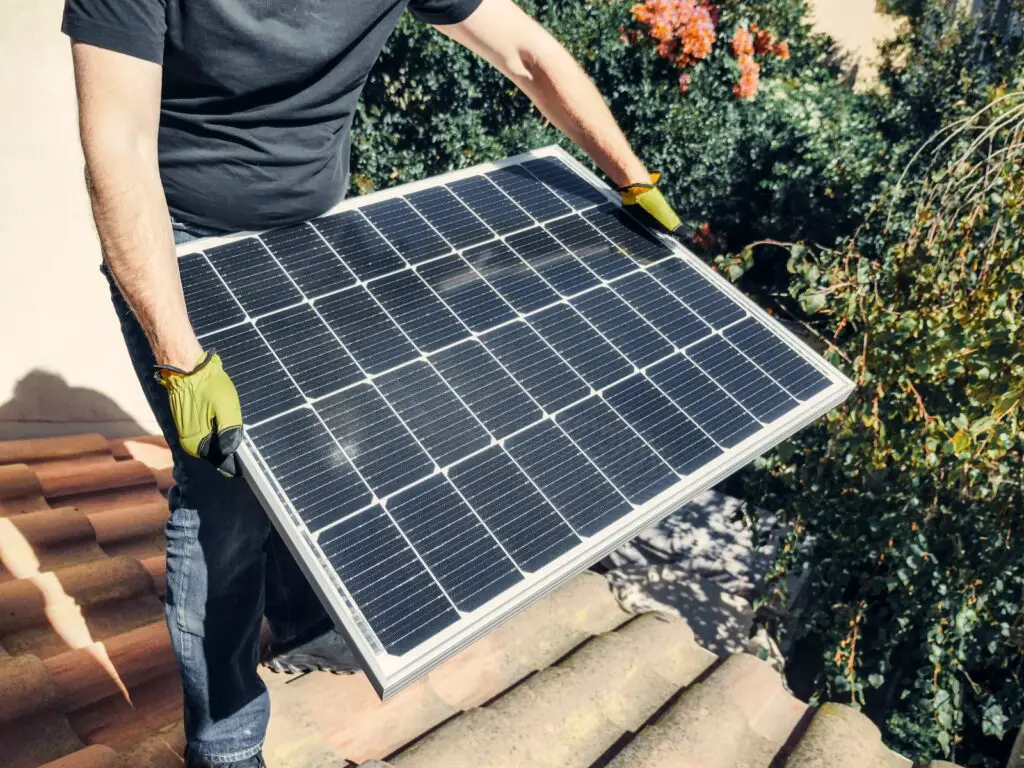Navigating the solar panel market can be a bit perplexing, especially when understanding costs, payback periods, or determining the right number of panels.
A standard U.S. home typically requires about 15 to 25 solar panels for complete power coverage.
Your precise requirement will hinge on your home’s size and electricity consumption. If you’re comfortable with calculations, some math will lead you to an accurate estimate. If not, no worries – we aim to simplify it for you.
To begin, have your electricity bill on hand, preferably detailing your consumption over the past year.
For a starting reference, use 400 watts as an average panel wattage.
If you’ve shortlisted a solar panel model, utilize its specific wattage. Armed with these figures, you’re set to estimate your needs.
How to Calculate the Number of Solar Panels Required to Power Your Home?
Annual Electricity Usage:
Your annual electricity consumption reflects the total amount of energy your home uses over a year.
This is quantified in kilowatt-hours (kWh) and varies depending on the electrical devices and appliances you have and the frequency of their usage.
From refrigerators, air conditioners, and lights to smaller gadgets like chargers, they all contribute to your electricity bill.
The U.S. Energy Information Administration (EIA) states that the typical American household consumes about 10,632 kWh of electricity annually, which averages out to 886 kWh monthly.
Using this figure, an ideal solar panel system would offset all your energy needs, essentially reducing your electricity bill to zero with solar energy. Of course, in reality, it’s a bit more complex than that.
For a precise estimation tailored to your consumption, it’s best to refer to your previous year’s electricity bills to gauge your average usage.
Production Ratio:
The production ratio of a solar panel system is determined by comparing the projected energy output of the system over time in kWhs to its actual size in watts (W).
It might seem logical to expect a 1:1 ratio, where the energy input directly corresponds to the solar energy output.
However, this isn’t the case, as the sunlight your panels receive can vary.
Hence, it’s essential to consider the actual size of the solar system when calculating the production ratio.
For instance, if a 10 kW solar system produces 16 kWh of electricity annually, it has a production ratio of 1.6 (16/10 = 1.6). Sun-soaked places like Florida can easily achieve such ratios.
In contrast, regions in the Northeast, which often have cloudy or rainy days, might see an average production ratio closer to 1.2. We’ll delve deeper into this in the following section.
Solar Panel Wattage:
The power rating, often referred to as panel wattage, indicates the electrical output of a solar panel under optimal conditions.
Measured in watts (W), typical solar panels have a wattage ranging from 300 to 400+ W.
The Ultimate Formula
The formula provided by EnergySage is a handy resource when trying to determine the number of solar panels your home requires:
Number of panels = system capacity / production ratio / panel wattage.
Here’s how to use it with the given data:
The number of panels = 11,000 kW / 1.6 / 300 W ≈ 23
Upon calculation, the result is roughly 20 to 25 solar panels needed based on this example. To determine the number of panels required for your residence, apply the same formula.
Review your electricity bills to ascertain the desired output and consider this when exploring solar panel options.
For Specific Appliances & Devices
While you can initially install a solar system and later expand it with additional panels to meet growing energy demands, it’s more practical to design your system to match anticipated energy needs from the start.
This might include considerations for future purchases like an electric car, swimming pool, or a central air system.
Posing questions like, “How many solar panels will I require for my AC?” is a smart way for anyone considering solar energy for their home. Here are a few questions you might be interested in:
- How Many Solar Panels Does It Take to Run a 5000 BTU Air Conditioner
- How Many Solar Panels Do I Need for Window AC
- How Many Solar Panels Do I Need for Underfloor Heating
- How Many Solar Panels Do I Need for a Geyser
- How Many Solar Panels Do I Need to Run an Electric Boiler
- How Many Solar Panels Do I Need to Run a Deep Freezer
- How Many Solar Panels Do I Need for a 30 Amp Controller
- How Many Solar Panels Do I Need for a 48v Inverter
For Monthly/Daily Energy Consumption
- How Many Solar Panels Do I Need for 500 kWh Per Month
- How Many Solar Panels Do I Need for 2500 kWh Per Month
- How Many Solar Panels for 100 kWh Per Day (3000 kWh Per Month)
- How Many Solar Panels for 50 kWh Per Day (1500 kWh Per Month)
- How Many Solar Panels for 20 kWh Per Day (600 kWh Per Month)








